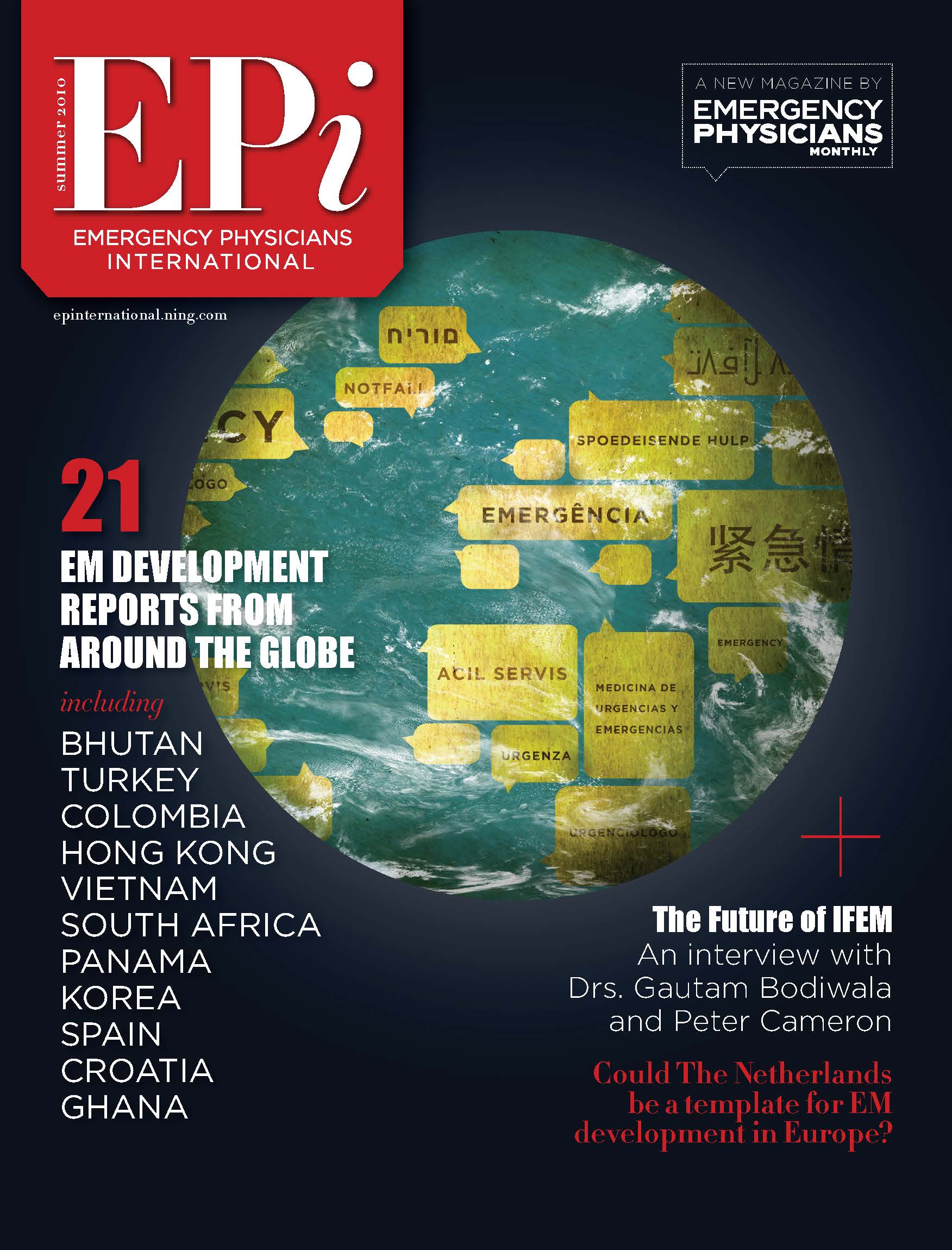Distribution Patterns of the Emergency Medical Workforce in Ghana
With the great efforts made to train emergency care workers over the past 10 years, it is critical to the success of emergency practice in Ghana to ensure that there is an equitable distribution of emergency care workers across the various strata of the health system. Even more at this early phase when the numbers of emergency physicians and emergency nurses trained is not high enough to ensure that every health facility is staffed with an emergency health care worker, it is very important that attention is placed on distribution of health care workers in a way that will allow for reasonable geographical coverage of the country. This will be in consonance with the aim and visions of the set-up of the emergency medical services by the then President John Agyekum Kuffour in 2004.
Additionally, the training of specialist doctors, nurses and emergency medical technicians is aimed at ensuring that every part of the country has these experts on hand to serve the people of Ghana. There have been more than three hundred nurses and probably over 500 emergency medical technicians trained over the past ten years who are currently staffing varying positions in different parts of the country. Emergency medical technicians are currently widely distributed across all the districts in Ghana from an initiative by the current government that led to the provision of ambulances in all districts in Ghana. Yet there are still major regions in this country without an emergency nurse and emergency physician specialist.
As the practice of emergency medicine evolves in Ghana, there is the need to start to draw attention to equity in the spread of the practice. If Ghana would see the true effect of emergency medicine practice in Ghana, then there is the need to start to focus on equitable distribution of emergency care workforce first across the all regions and then along the strata of the health system in Ghana. The National Ambulance Service has taken this in their stride in ensuring that there is an ambulance with emergency medical technicians in all districts in Ghana. This move has overcome the inequity of resource distribution between the urban and rural divide in pre-hospital care to a large extent.
There are currently sixty fully trained emergency physician specialist and out of this number 9 are fellows who can take academic positions to train other emergency physicians. Out of these sixty trained emergency physicians, forty-three work in the cities of Accra and Kumasi, the two largest cities in Ghana. There are eight regions in Ghana that do not have a single emergency physician to provide service, leadership, guidance and training as far as emergency medical service delivery is concerned. So early in the development of emergency medical services in Ghana, there is clearly a skewness in the distribution of practitioners as pertains in a number of developed countries. There is a need to assess this situation of inequity in emergency medical services workforce distribution as early as possible before it gets out of hand. I advocate that consultative action among the policy makers, Ministry of Health, Ghana Health Service, consultants of Emergency Medicine and training institutions be initiated to address this looming situation.
There are a number of strategies that can be adapted to mitigate the inequity in health workforce distribution. One of the areas that could be considered by policy makers in Ghana could be the concept of introducing rural emergency medicine practice.
Rural Emergency Medicine Practice in Ghana
Making a case for rural emergency medicine practice has become pertinent as the practice of emergency medicine progresses in Ghana over 10 years. Clearly, some useful gains have been made in the development of emergency in Ghana including the introduction of the national ambulance services, the training of emergency physician specialists and emergency nurses, training of emergency medicine technicians and the emergency medicine training for medical students. There have been good outcomes demonstrated through the introduction of formal emergency medicine practice and training in Ghana described in impact assessments done by some authors in Ghana.
Rural practice of emergency medicine should be the focus of emergency medicine in Ghana going forward in the next few years. This involves getting trained emergency health workers staffing lower tier hospitals including district hospitals, polyclinics and health centers in a systematic and strategic format. There should be an approach to ensure that just as the National Ambulance Service is in every district of Ghana, emergency nurses and emergency physician specialists will be distributed across all the regions and major district hospitals in Ghana. This will enhance the quality of service delivery at the lower tier hospitals and will lead to reduced burden of referrals on the tertiary and regional hospitals. Clearly, the benefits of rural emergency medicine practice has been widely described by Wadman et al, who showed that staffing rural hospitals in emergency physicians had a double pronged benefit of improving patient outcomes and providing fulfilment of practice to physicians.
There is, however, a need to boost and facilitate this process by ensuring that concrete steps are taken at addressing resource distribution across all regions and evenly across the health strata. Motivating packages for health workers who choose to practice in more rural settings could be a good way to ensure that retention. A clear policy framework detailing the strategic development of emergency rooms along the strata of health system in Ghana should be the first step. Strides were made towards this goal when the Ministry of Health and the Ghana Health Service in making emergency medical services development one of their key strategic goal. This policy must be pushed actively and effectively in Ghana to see clear development of infrastructure and human resources for emergency medicine. A lot more must be done and with speed if Ghana is going to see achievement of the sustainable development goals.
Additionally, Wadman proposed a concept that may be equally rewarding to the health system as well as the emergency medicine practitioners. This is the concept of introducing rural rotations as part of the training of emergency medicine residents and emergency nursing students in Ghana. As was found in several studies, the rural setting provides a uniqueness in emergency medicine practice which is very different from urban practice of emergency medicine. There are procedures and patient presentations that are more characteristic of the rural setting and exposing residents to these will enhance their exposure and quality of training. As was found in studies by Wadman, some emergency physicians who ended up taking more rural positions in the US often did so because they had had a prior rural rotation in those communities. This may be a model that, when introduced into the curriculum for emergency nurses and physicians, may enhance the appeal of rural practice to emergency health workforce and eventually result in some equity in the distribution of these specialized health practitioners in Ghana. Considering rural rotations as part of the curriculum for the emergency medicine and nursing residents by the training institutions will be the first step at bridging the inequity of emergency health workforce distribution in Ghana.
Rural emergency practice will be a key strategic step in enhancing equity of emergency health work force in Ghana. This call has become louder even as we tackle the global pandemic. Emergency health workers have stood tall in the fight against COVID-19 in Ghana, ensuring a equitable distribution through well thought through strategic steps including rural emergency practice could enhance Ghana’s effort against the pandemic and ensuring sustainable provision of equitable health services.







